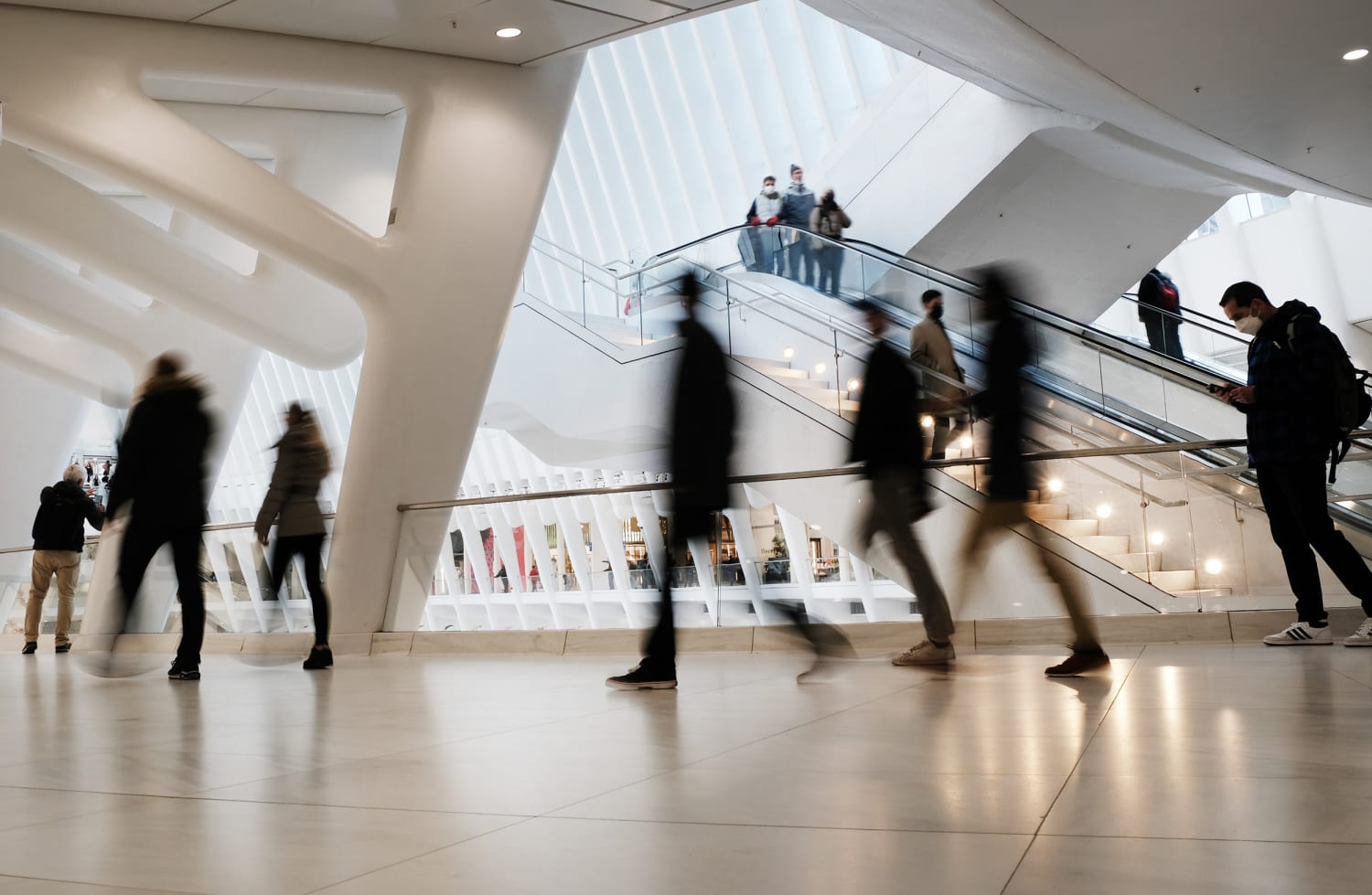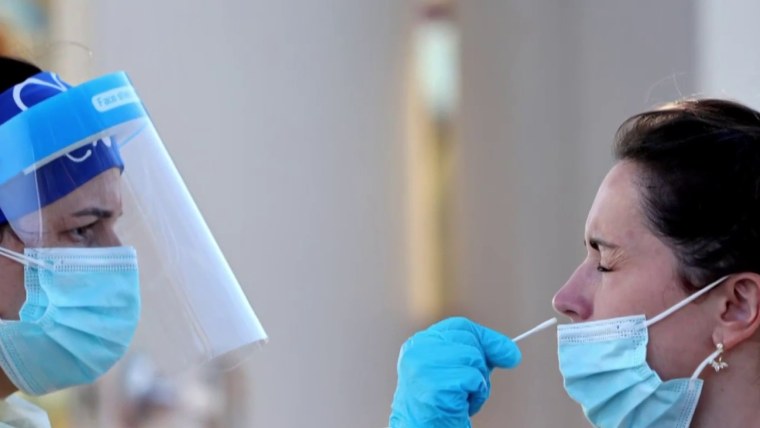When Philadelphia’s health commissioner announced this week that the city’s indoor mask mandate would be reinstated amid increasing Covid-19 cases there, something unusual happened: Not a single other major U.S. city followed suit.
Throughout the pandemic, local, state and federal precautions have followed a predictable pattern. As key Covid indicators such as infections, hospitalizations and deaths have gone up, so have the number of officials who have required masks, proof of vaccination or other measures meant to slow the rate of transmission of the virus.
Now, as the more contagious BA.2 subvariant of the omicron strain spreads, it’s business as usual for much of the country. While the Centers for Disease Control and Prevention on Wednesday extended the federal transit mask mandate and a handful of universities have brought back mask requirements, other restrictions remain relaxed.
Some people have implemented their own precautions, wearing masks even when there is no requirement to do so. But overall, the latest subvariant seems to have brought more of a collective shrug of the shoulders than previous strains.
Tom, 28, who works in financial services in Chicago and asked to be identified by his first name only because of the polarizing nature of the topic, is vaccinated and boosted and religiously wore a mask in the early days of the pandemic. Now, he said, “I am no longer acutely concerned.”
He caught a mild case of Covid in 2020 and does not worry about getting severely ill in the future thanks to the vaccine.
BA.2 — which caused an explosion of cases in Europe, but did not consistently result in a spike in deaths — has not inspired him to put his mask back on.
“What it would take to get me to raise my eyebrows and get me to start thinking about this again would be if there’s some very obvious quantitative increase in severity.”
“What it would take to get me to raise my eyebrows and get me to start thinking about this again would be if there’s some very obvious quantitative increase in severity,” he said.
In the U.S., the seven-day average of reported Covid deaths is about 500 per day, according to the CDC, down significantly from peak numbers. While Covid infections nationwide appear to be at their lowest point in months, up only slightly in recent days, the actual number of people infected is surely higher due to home test results not always being reported, experts say.
But the threat of increasing cases has not halted corporations’ plans to end remote work, unlike earlier in the pandemic, when one company after another pushed back employees’ returns to the office as surges occurred.
In recent days, large companies such as Apple and Qualcomm have begun requiring employees to come back to the office in-person (neither responded to an inquiry from NBC News regarding their policies).
Nationwide Insurance, which has 25,000 U.S. employees and a hybrid work model in which its office is never above 50 percent capacity, does not require employees to be vaccinated — and told NBC News the current state of the pandemic would not change that.
“While we encourage all employees to get vaccinated, we also understand that vaccination is a personal decision and not everyone has received or will receive the vaccine due to health reasons, religious beliefs or other personal reasons,” the company said in a statement. “We will continue to monitor the situation and continue practices that align with CDC guidance as well as county, city and state regulations.”
Outside of the corporate world, there is a dwindling attention span for the pandemic as well. In an NBC News poll from March, Americans said they were more concerned with the rising cost of living than Covid.
‘Covid and the pandemic is not about the individual’
While the country is better positioned to handle the coronavirus now than when cases rose earlier, thanks to vaccines, boosters and antiviral medications, it’s not realistic to ditch precautions, said physician Dr. Sadiya Khan, an assistant professor of cardiology and epidemiology at Northwestern University’s Feinberg School of Medicine.
“It’s tough to keep acting like it’s going to be the end of the world or there’s another disaster coming. You can only prepare yourself for disaster so many times. But we swung too far the other way,” she said. “We’re not being reasonable.”
She worried that too many people still see Covid as “a bad cold” more than two years in.
“Unfortunately Covid and the pandemic is not about the individual. It’s about lives lost and consequences of living with Covid, like long Covid, and delayed care because hospitals may get very busy again,” she said.
Those who are high-risk have found that as those around them have become more lackadaisical about precautions, their worlds have become tinier.
Elaine Stephen, 47, of Wichita, Kansas, has a rare condition called idiopathic intracranial hypertension that could make her vulnerable to complications if she were to catch Covid. She is also receiving radiation therapy for cancer. Unlike a lot of others in her area, she is still being extra safe, “which means a whole lot of alone time,” she said.
She used to check Covid data daily in her county so she had an idea of what her risk level was and whether it was safe to see relatives, but the county doesn’t share data as frequently as it did, leaving her feeling more vulnerable.
“I don’t have the data to be able to judge whether or not there’s a lot of community spread,” she said.
Instead, she wears a mask on the rare occasion when she does go out, but doesn’t expect that others will do the same given that they are not required to.
“I would be thrilled to patronize a business that mandated precautions of some sort,” she said. “I try to patronize businesses here that at least encourage precautions. We don’t have a lot of that.”
Khan urged businesses and individuals to remain on alert, pointing to the Covid surge currently happening in China.
“We need to learn from other countries,” she said. “If we were to act proactively, there could be a big difference in what happens next.”
Source: | This article originally belongs to Nbcnews.com










